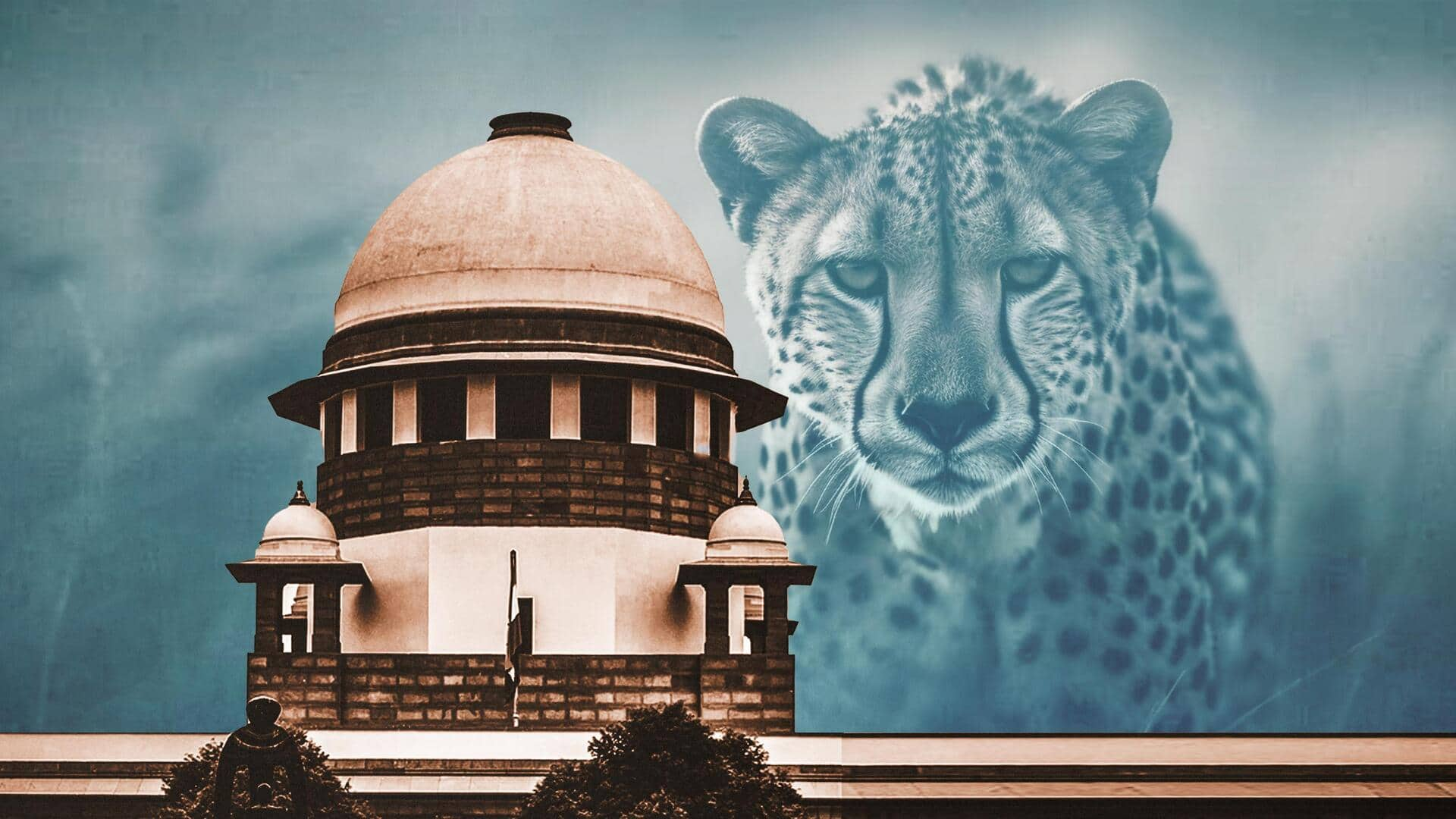
Foreign experts flag serious concerns about India's Project Cheetah
What's the story
India's prestigious cheetah conservation program, Project Cheetah, has reportedly plunged into a crisis leading to the "avoidable" deaths of big cats recently. According to The Indian Express, African experts who are members of the national cheetah project steering committee—under which 20 cheetahs have been translocated to India—have raised "serious concerns" over the project's management in a letter to the Supreme Court.
Context
Why does this story matter?
At least eight cheetahs died in Kuno National Park in Madhya Pradesh within 10 months of the project. The deaths include three of the first four cheetah cubs born in India in more than 75 years. These deaths have raised questions regarding India's cheetah conservation efforts and what exactly was happening with cheetahs at the national park.
Details
Experts expressed frustration over lack of transparency in project
Top African experts, who have been part of the steering committee working on the initiative since 2020, expressed frustration over a lack of transparency from officials at Kuno National Park in their letters to the SC. They have reportedly underlined that some of the cheetah deaths "could have been prevented by better monitoring of the animals and more appropriate" and timely "veterinary care."
Statement
Project's management has 'little' scientific training: Dr. Adrian Tordiffe
Dr. Adrian Tordiffe, a veterinary wildlife specialist from South Africa, wrote to the apex court last month, alleging that the project's current management has "little or no scientific training." He reportedly claimed that the foreign experts' "opinions" are being "ignored" and that they "have become mere window dressing" for the project. Another expert, Dr. Laurie Marker, flagged similar issues, saying better monitoring was needed.
Officials
Deaths of two cheetahs due to radio collar
According to local forest officials, natural causes were responsible for the fatalities. Experts, on the other hand, are particularly disturbed by the deaths of Suraj and Tejas, who allegedly died as a result of skin infections caused by radio collars intended to track animals in the wild. Reportedly, an exercise to remove radio collars from 10 free-roaming cheetahs in the park has been proposed.
Letter
When Kuno field staff left male cheetah to die
Detailing one of the instances of mismanagement, Dr. Tordiffe said the Kuno field team left an injured male cheetah unattended on July 11. "The staff at Kuno left the injured male, deciding rather to locate the female to check if she was also injured. During that time the condition of the male deteriorated, and he died without having received any treatment," the letter said.
Supreme Court
Supreme Court monitoring project
In January 2020, the Supreme Court lifted the ban it imposed on the cheetah project in 2013 on a petition filed by the National Tiger Conservation Authority (NTCA). The court continues to monitor the project. Notably, the experts flagged the "serious concerns" on July 15, days after the deaths of male South African cheetahs Tejas and Suraj.
About
What we know about Project Cheetah
As part of the cheetah reintroduction program initiated in September last year by Prime Minister Narendra Modi, eight cheetahs were brought from Namibia to India and released at Kuno National Park. Twelve more cheetahs were flown over from South Africa in February this year, out of which six live in various enclosures at the national park, and the rest live in the wild.